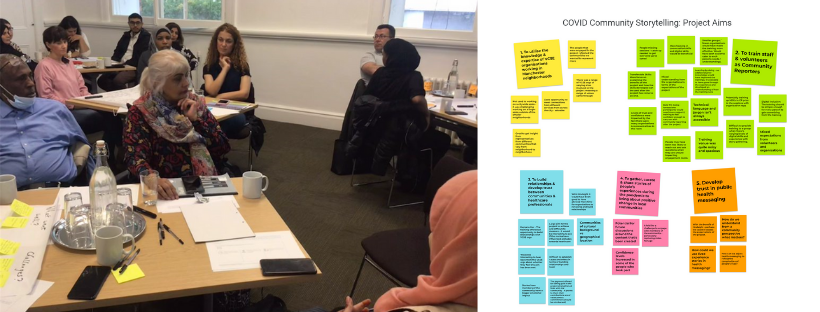HOME? PROJECT: ANIMATION & TOOLKIT LAUNCH
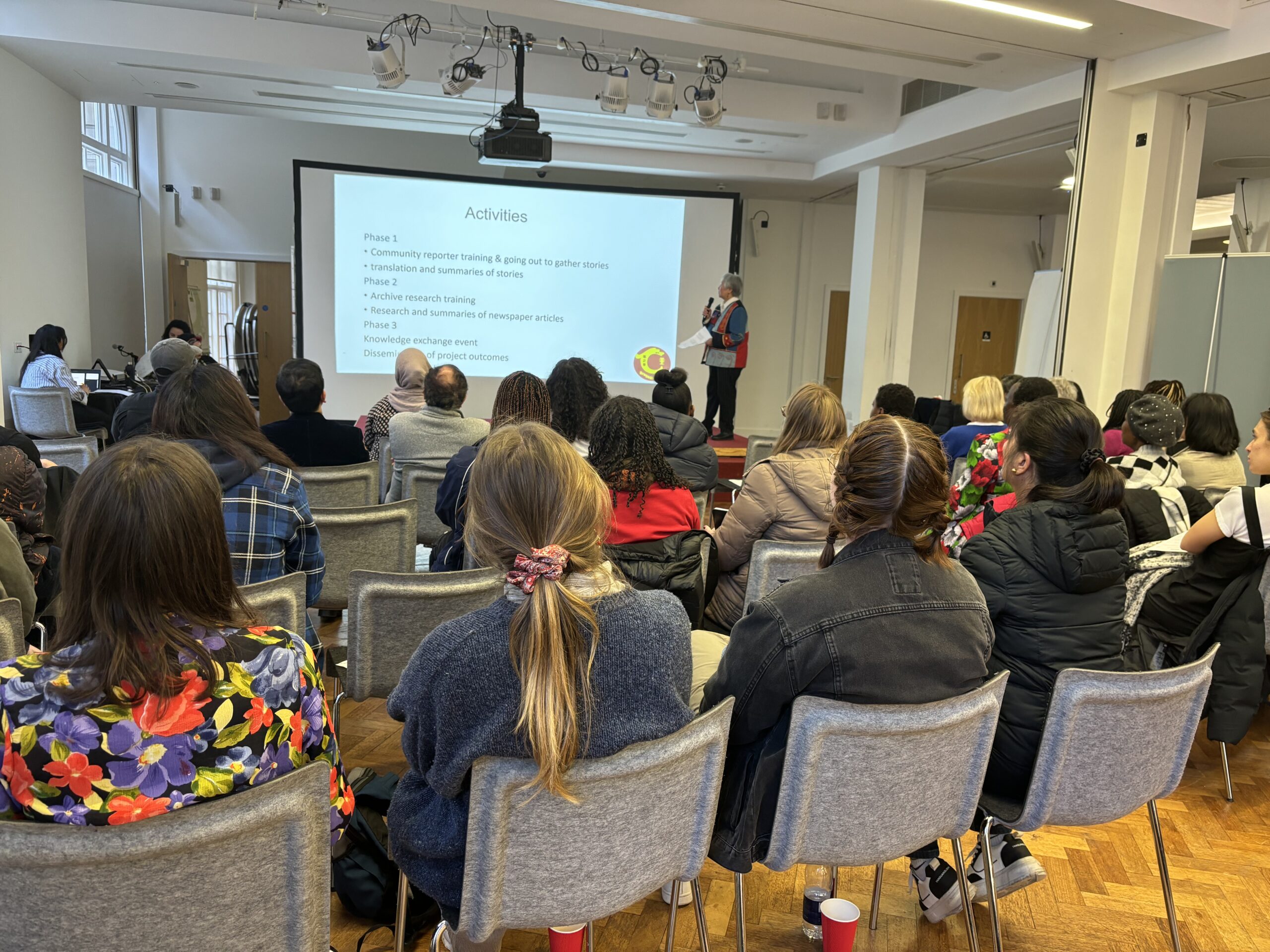
We are thrilled to announce the launch of the HOME? Heritage Project website alongside our animation and toolkit.
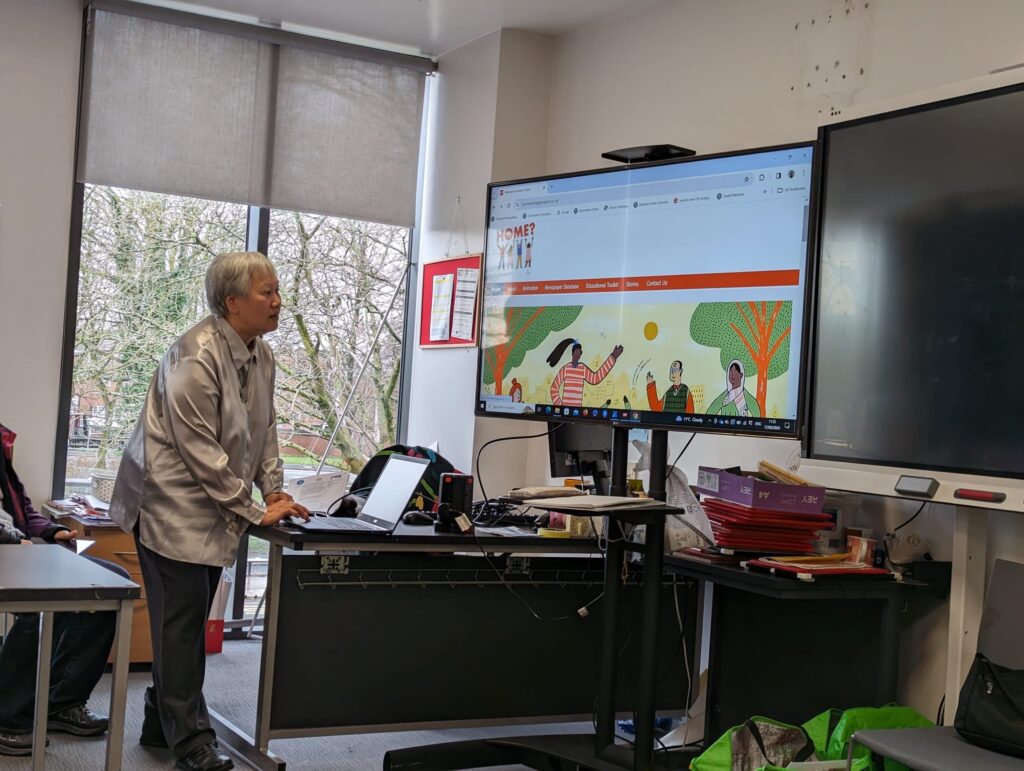
Person giving a presentation in a classroom with a large screen showing a colorful graphic representing the HOME? Project
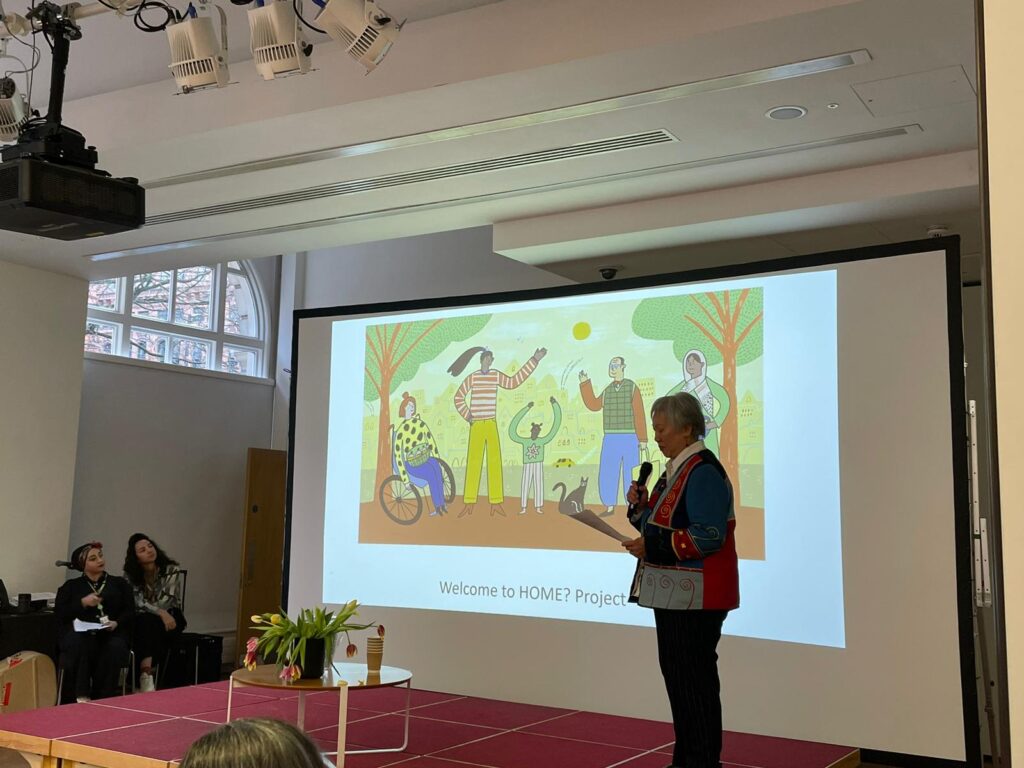
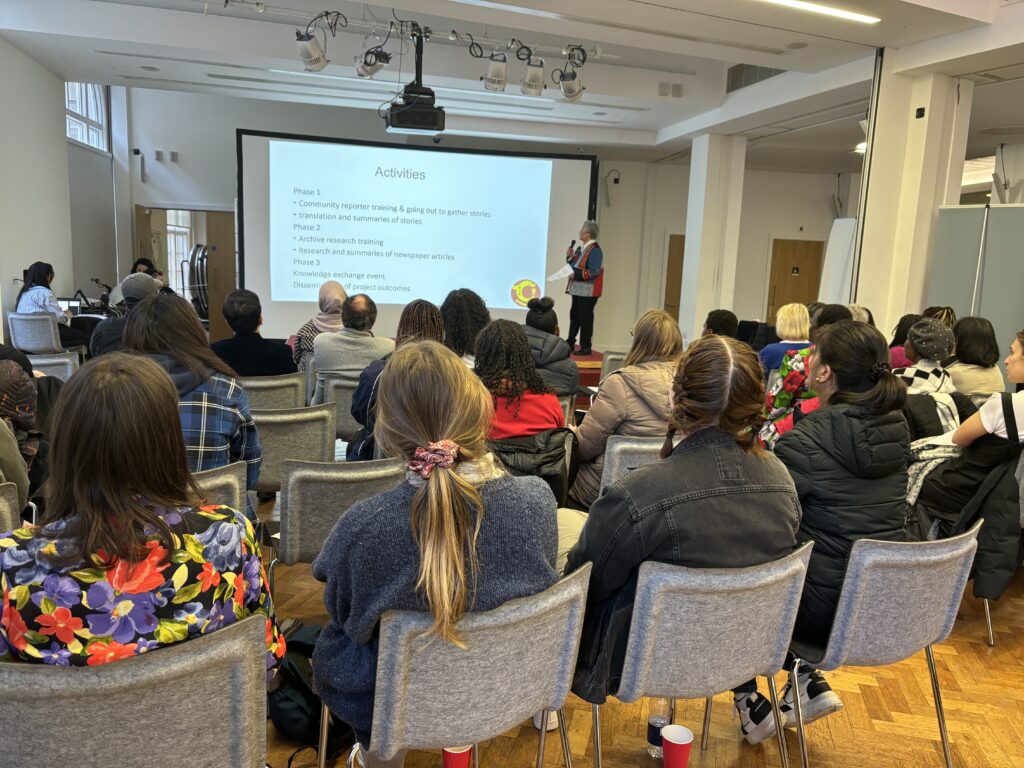
Partner organisations have already organised screenings and launches throughout February. Global Link in Lancaster and Dragons Voice in Manchester launches were well attended by the local community members and other organisations. Attendees were engaged, informed, and enlightened by the issues highlighted in the animation and toolkit. Some audience members expressed that they gained a deeper understanding of the migrant experience and the valuable contributions made by migrant communities in the UK.
‘It was very useful for me to receive new experience and learn more about migration’.
Audience member feedback
Additionally, the majority felt they had ideas to effect positive change within their communities based on the insights gained. One audience member commented on how to create employment networks.
‘Enhancing and expanding local networks for refugee employment in collaboration with other organisations’.
Audience member feedback
The Home? Heritage project is funded by the Heritage Lottery Fund and started back in May ’22. Working in partnership with the following vital organisations who offer crucial support – GLOBAL LINK in Lancaster, MAP in Middlesbrough, LASSN in Leeds, DRAGONS VOICE in Manchester, REFUGEE WOMEN’S CONNECT in Liverpool, and NACCOM who are a national organisation who supported us with the creation of the toolkit. We worked across Northern England, collecting and curating the lived experiences of migrants (including refugees, people seeking asylum, and other migrants) living in Northern England during the last 10 years.
The animation and the toolkit is designed to assist groups in listening to the stories of lived experience of people who have come to the UK in the last 10 years and promote discussion about how we can help people arriving in the UK feel at home. In listening to the stories, we can gain a better understanding of the challenges that displaced people living in the UK face and this understanding will deepen, helping empathy and compassion to grow.
We hope that these resources will support schools, youth groups, community groups, informal education projects, charities, local councils, and other organisations to work with lived experience stories that focus on recent contemporary migration to the UK. Helping to foster a culture of compassion and understanding to counteract the culture of the ‘hostile environment’.
The next and final stage of the project will be the Co-Evaluation Workshop that we will be holding on 18th March 2024. This will be attended by our 5 organisation partners and some of the participants who took part in the project. As a substantial part of the workshop, we would like to carry out some Ripple Effect Mapping. This is an interactive, group evaluation method that encourages people to think about the consequences, effects, and outcomes from a social change project – intended and unintended, big and small.


